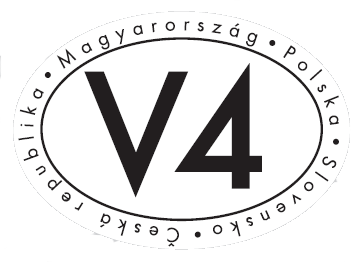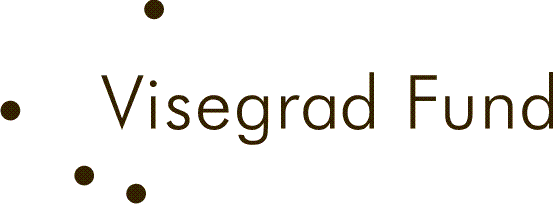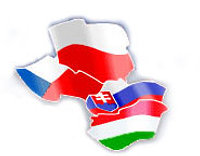Project Publications
| Book 1 | Book 2 | Book 3 | Book 4 | Book 5 | Book 6 | conference articles in journals |
Bartha, Z., & Gubik, A. S. (2014). The Role of Business Knowledge in the Internationalisation Process of Hungarian Corporations (chapter 6) In: D. Kiendl-Wendner & K. Wach K. (Eds.), International Competitiveness in Visegrad Countries: Macrto and Micro Perspective. Graz: Fachhochschule Joanneym (ISBN: 978-3-200-03673-4).
Full text: pdf (free download)
Abstract
The aim of this paper is to identify the knowledge elements that are crucial in the internationalisation process of Hungarian firms. It uses a two-dimensional model of business knowledge, which separates business knowledge along two dimensions: the tacit or explicit nature; and the codified or uncodified one. This model tells us that tacit and codified knowledge is the most difficult to transfer, while the explicit-uncodified part is the easiest. The five types of business knowledge were measured with a questionnaire. It is non-representative, filled in by 104 Hungarian firms among which the larger and more internationalised ones are overrepresented. Based on this non-representative sample we have found that the organisational beliefs and habits, and the competence of the employees are the two business knowledge elements that are most closely associated with the internationalisation of the firms. This makes it especially difficult to promote internationalisation through the transfer of knowledge, because these key knowledge elements are the stickiest, the hardest to transfer.
Keywords: Internationalisation, business knowledge
JEL classification: M16, L20, L21
References
Barkema, H., Bell, J.H., & Pennings, J.M. (1996). Foreign Entry, Cultural Barriers, and the experience factor in foreign market entry behavior of service firms. Learning. Strategic Management Journal, 17, 151-166.
Bartha, Z. (2006). Az üzleti tudás sajátosságai és hozzáférhetőségének körülményei. PhD dissertation: http://193.6.1.94:9080/JaDoX_Portlets/documents/document_5611 _section_1179.pdf
Bartha, Z. (2011). Network Economics. Budapest: Nemzeti Tankönyvkiadó.
Cavusgil, S.T., & Knight, G. (2009). Born global firms – A new international enterprise. New York: Business Expert Press, LCC.
Daszkiewicz, N., & Wach, K. (2012). Internationalization of SMEs: Context, Models and Implementation. Gdańsk: Gdańsk University of Technology Publishers.
Daszkiewicz, N., & Wach, K. (2014). Motives for Going International and Entry Modes of Family Firms in Poland, Journal of Intercultural Management, 6(2).
Duréndez, A., & Wach, K. (2014). Patterns of Business Internationalisation in Visegrad Countries – In Search for Regional Specifics. Cartagena: Politéncina Universitad de Cartagena.
Erramilli, M. K. (1991). The Experience Factor in Foreign Market Entry Behavior of Service Firms. Journal of International Business Studies 22(3), 479-501.
Gubik, A.S. & Karajz, S. (2014). The Choice of Foreign Market Entry Modes – The Role of Resources and Industrial Driving Forces. Entrepreneurial Business and Economics Review, 2 (1).
Gubik, A.S. & Wach, K. (eds) (2014). International Entrepreneurship and Corporate Growth in Visegrad Countries. Miskolc: Miskolc University Press
Hitt, M.A., Bierman, L., Uhlenbruck, K., & Shimizu, K. (2006). The Importance of Resources in the Internationalization of Professional Service Firms: The Good, the Bad and the Ugly. The Academy of Management Journal 49(6), 1137-1157.
Johanson, J., & Vahlne, J.E. (1990). The Mechanism of Internationalisation. International Marketing Review, 7(4), 11-24.
Johanson, J., & Mattsson, L.G. (1987). Interorganizational relations in industrial systems: a network approach compared with the transaction cost approach. International Studies of Management & Organization 17(1), 34.
Johanson, J., & Wiedersheim-Paul, F. (2006). The Internationalization of the Firm. Four Swedish Cases. In: Buckley, P., & Ghauri, P.N. (eds.) (2006): The Internationalization of the Firm. New York: International Thomson Business Press.
Kuwada, K., & Asaba, S. (1989). The continuous side of discontinuity. Tokyo Metropolitan University - Journal of the Faculty of Economics, 63.
Lundvall, B. A., & Johnson, B. (1994). The Learning Economy. Journal of Industry Studies, 1(2), 23-42.
March, J. G., & Levitt, B. (1988). Organizational learning. Annual Review of Sociology, 14, 319-338.
Naisbitt, J. (1982). Megatrends. Ten New Directions Transforming Our Lives. New York: Warner Books.
Polanyi, M. (1966). The Tacit Dimension. London: Routledge and Kegan.
Reid, S.D. (1981). The Decision-Maker and Export Entry and Expansion. Journal of International Business Studies, 12, 101–112.
Sasvari, P. (2012). A Conceptual Framework for Definition of the Correlation Between Company Size Categories and the Proliferation of Business Information Systems in Hungary. Theory, Methodology, Practice, 8(2), 51-59.
Starbuck, W. H. (1992). Learning by knowledge intensive firms. Journal of Management Studies, 29 (6), 713-740.
Sveiby, K. E. (1997). The New Organizational Wealth. San Francisco: Berrett-Koehler Publishers.
Varga, B., & Szilágyi, R. (2011). Kvantitatív információképzési technikák. Budapest: Nemzeti Tankönyvkiadó.
Wach, K. (2014a). Familiness and Born Globals: Rapid Internationalisation among Polish Family Firms, Journal of Intercultural Management, 2(3-4).
Wach, K. (2014b). Research Methodology of the Field Study on the Firm-Level Internationalisation in Visegrad Countries (chapter 2), In: Duréndez, A., & Wach, K. (2014). Patterns of Business Internationalisation in Visegrad Countries – In Search for Regional Specifics. Cartagena: Politencina Universitad de Cartagena, pp. 33-42.
Wach, K. (2014c). Theoretical Framework of the Firm-Level Internationalisation in Business Studies (chapter 1), In: Duréndez, A., & Wach, K. (2014). Patterns of Business Internationalisation in Visegrad Countries – In Search for Regional Specifics. Cartagena: Politencina Universitad de Cartagena, pp. 13-30.
Czech Republic
Hungary
Poland
Slovakia

Contact:
Dr hab. Krzysztof Wach
Cracow University of Economics
wachk@uek.krakow.pl
www.wach.uek.krakow.pl

